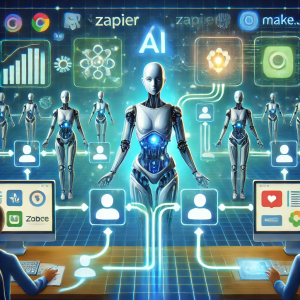The ancient game of Go, with its origins in China over 2,500 years ago, has long been regarded as one of the most challenging board games due to its vast complexity and depth. Unlike chess, where the number of possible moves is relatively constrained, Go’s enormous 19×19 board allows for an almost infinite number of possible configurations, making it a game that relies heavily on intuition and long-term strategy. For centuries, mastering Go was considered a pinnacle of human intellectual achievement. However, in recent years, this traditional human stronghold was conquered by artificial intelligence (AI), marking a profound shift in the relationship between humans and machines.
The Complexity of Go
Go’s appeal to AI researchers stems from its inherent complexity. A game with 361 possible moves at the start (compared to 20 in chess) quickly expands into a staggering number of potential board configurations—more than the total atoms in the universe. This vast search space has made traditional brute-force computational methods, used in chess AI, ineffective. Mastering Go requires a blend of pattern recognition, strategic planning, and what many players refer to as “feel” or intuition, making it a supreme challenge for AI.
For decades, Go was deemed “unsolvable” for computers. While AI surpassed human champions in games like chess and checkers, the intricate subtleties of Go kept machines at bay, requiring new approaches to overcome.
Enter AlphaGo: The AI Breakthrough
The breakthrough came in March 2016 when Google’s DeepMind developed AlphaGo, an AI program specifically designed to tackle Go. AlphaGo was the first AI to defeat a professional human Go player, the European Go champion Fan Hui. But the real test came when AlphaGo faced Lee Sedol, one of the best Go players of all time, in a highly anticipated five-game match. Lee Sedol was expected to dominate, but AlphaGo stunned the world by winning four of the five games.
The victory was monumental for AI research. Unlike previous game-playing programs that relied on sheer computational power and pre-defined strategies, AlphaGo utilized deep neural networks and reinforcement learning. It learned by playing millions of games against itself, refining its strategies in a way that mimicked human learning but at a far greater scale. AlphaGo combined supervised learning (training on a dataset of historical games) with self-play, where it improved by continually competing against earlier versions of itself. This allowed AlphaGo to not only calculate potential moves but to develop its own form of “intuition” in the game.
The Rise of Superhuman Go AI
Following AlphaGo’s triumph, DeepMind continued to improve the AI. AlphaGo Zero, an even more advanced version, was created. What made AlphaGo Zero unique was its ability to learn Go completely from scratch—without any prior knowledge or data from human games. It started with only the basic rules of Go and, through self-play, quickly surpassed not only human players but even the original AlphaGo, beating it 100 games to zero. Incredibly, AlphaGo Zero reached this superhuman level of play within days, demonstrating the raw power and potential of self-learning AI systems.
AlphaGo Zero’s victory highlighted a paradigm shift: AI was no longer constrained by human knowledge or strategies. The machine had transcended human expertise, discovering new moves and tactics never before seen in millennia of Go history. Its dominance was a profound moment not only for Go but for artificial intelligence as a whole.
The Impact on AI and Human Understanding
AlphaGo’s victory over the world’s best human players had ripple effects far beyond the Go community. It symbolized AI’s ability to tackle problems previously thought to be insurmountable. The same algorithms used to dominate Go were soon applied in diverse fields, from healthcare to climate modeling, to scientific research. AlphaGo’s success demonstrated the potential of AI to solve complex, open-ended problems that require creativity, intuition, and strategic thinking.
For many, the Go championship victory also raised philosophical questions. Go had long been seen as an art form, where intuition and human creativity played a key role. Yet here was an AI, devoid of emotions or consciousness, mastering the game and even surpassing the most brilliant human players. The achievement forced society to reconsider the boundaries of machine intelligence and the nature of creativity itself.
Human Players and AI: Collaboration, Not Defeat
Despite AI’s dominance, the relationship between Go and AI has evolved into one of collaboration rather than defeat. Human players now study games played by AlphaGo and AlphaGo Zero to gain new insights, adopting strategies and moves previously thought impractical. In fact, many professional Go players have reported that the introduction of AI has deepened their understanding of the game, pushing them to think in more abstract and innovative ways.
AI has breathed new life into the ancient game, making it more exciting and dynamic. Go is still very much alive as a human pursuit, and now, with AI as a teacher, players are discovering new layers of depth and strategy.
Conclusion: A New Era for AI and Humanity
The triumph of AI in Go marks a milestone in human progress. It is a testament to the immense potential of artificial intelligence and a glimpse into the future of human-machine collaboration. While AI may have become the Go world champion, the deeper lesson is that AI can unlock new levels of understanding, creativity, and innovation—not just in games but in the real world.
The Go board, once a symbol of human intellectual mastery, now stands as a symbol of what humans and machines can achieve together.
[SEO optimized]


Pingback: AlphaChip: The Next Frontier in AI Hardware - evertslabs.org